
Integrix Core Platform - Smart Platform Modules for Centralized Control
The Integrix Core Platform powers every intelligent solution by orchestrating data, decisions, and operations in one unified environment. Through Core Platform Modules, it delivers centralized control, real-time analytics, and seamless system integration. Designed as Smart Platform Modules, it ensures efficiency, scalability, and security across diverse applications – from AI-driven insights to dashboards and admin tools that empower smarter system operations.
The Brain of Integrix Platforms

The DeviceOps Module in the Integrix Core Platform provides real-time monitoring and geo-based visualization of connected devices across Intelligent & Smart Platform Modules. From surveillance systems to traffic sensors, DeviceOps centralizes status tracking, signal strength, and connectivity while delivering interactive eMap displays. This ensures smarter infrastructure management, proactive alerts, and efficient resource allocation within Integrix Core Platform Modules.
🔷 Map-Based Device Visualization: Cameras, sensors, and equipment are geo-tagged and displayed on 2D/3D eMaps for live viewing and instant actions.
🔷 Live Health Monitoring: Tracks signal strength, connectivity, uptime, and power with automated alerts for anomalies or disconnections.
🔷 Smart Grouping & Area Control: Devices can be grouped by zone, location, or type for tailored control, scheduled maintenance, and optimized performance.
💎 DeviceOps Module
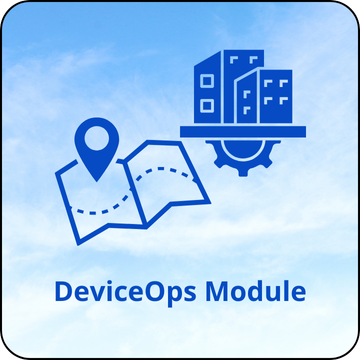

Real-time infrastructure monitoring with geographic visualization

The AI-Powered Module is the analytical intelligence engine of the Integrix Core Platform, driving Intelligent & Smart Platform Modules with real-time insights, predictive analytics, and automated responses. By transforming video and sensor data into actionable intelligence, it enables faster, smarter, and more autonomous decision-making across complex environments.
🔷 Real-Time Image & Video Analytics: Detects anomalies such as intrusions, wrong-way movements, crowd density, and abnormal behaviors using AI-driven analysis.
🔷 Risk Prediction & Scenario Simulation: Leverages historical and contextual data to anticipate threats, simulate scenarios, and generate early alerts.
🔷 Automated Decision-Making & Response Triggers: Executes pre-defined actions like activating devices, dispatching drones, or opening gates — reducing response latency and manual workload.
💎 AI-Powered Module
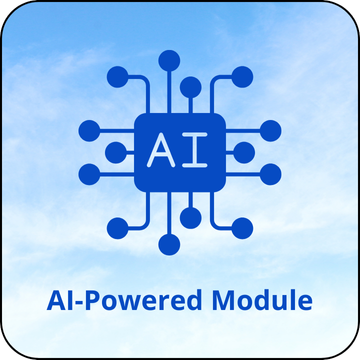

Intelligent Analysis & Automated Decision-Making

💎 Event Handling Module
The Event Handling Module is a key component of the Integrix Core Platform, centralizing the capture, classification, and management of all incidents. From sensor alerts to AI-detected anomalies, every event is logged, analyzed, and routed through Smart Platform Modules for coordinated responses. This ensures reliability, transparency, and traceability in managing security and operational events.
🔷 Multi-Source Logging & Categorization: Aggregates data from cameras, sensors, fire alarms, patrol units, and AI systems — structured by severity, location, and type.
🔷 Automated Response Coordination: Synchronizes with modules like Alarm, Wall Display, and Admin Center to trigger alerts, switch views, activate devices, or notify response teams in real time.
🔷 Archiving, Tracing & Reporting Tools: Maintains full event timelines, supports evidence management, and generates exportable reports for audits and compliance reviews.
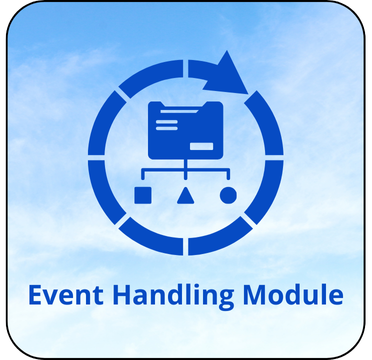

Security Event Management & Response

💎 Alert Module
The Alert Module is a vital part of the Integrix Core Platform, acting as the intelligent notification hub within the Smart Platform Modules. It ensures urgent messages are delivered across multiple channels so that every critical warning reaches the right people, at the right time, and in the right context. By integrating with other Core Platform Modules, it strengthens the responsiveness and efficiency of the entire Integrix Core Platform.
🔷 Multi-Channel Alert Delivery: Sends alerts via sirens, strobe lights, mobile push notifications, SMS, desktop popups, and internal emails — based on event type, urgency, and role.
🔷 Zone-Based & Tiered Escalation: Supports customizable alert zones and escalation levels, from local notices to system-wide alerts with external responder coordination.
🔷 Scenario-Linked Triggering: Integrates with workflows to activate lights, cameras, signage, access points, or incident routing to assigned personnel.
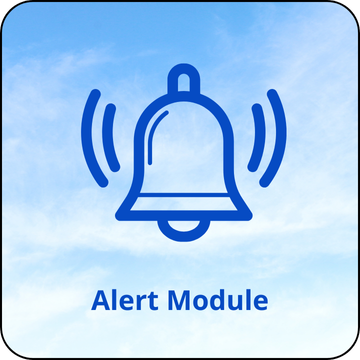

Multi-Channel Alerts & Tiered Response Management

💎 Dashboard Module
The Dashboard Module is a central component of the Integrix Core Platform, delivering a live, unified view of device statuses, alerts, and operational events. As one of the most powerful Smart Platform Modules, it consolidates real-time data into a single interactive interface — empowering operators with clarity, speed, and confidence to act. By integrating seamlessly with other Core Platform Modules, the Dashboard Module enhances decision-making, situational awareness, and coordinated responses across the system.
🔷 System-Wide Visualization: Combines real-time device health, camera feeds, alerts, and incident maps into a single view.
🔷 Role-Based Interface Customization: Allows layouts tailored to different roles such as security, maintenance, or operations.
🔷 Direct Command & Response Integration: Connects with Event Handling, Alert, and DeviceOps Modules for real-time monitoring, control, and team coordination.
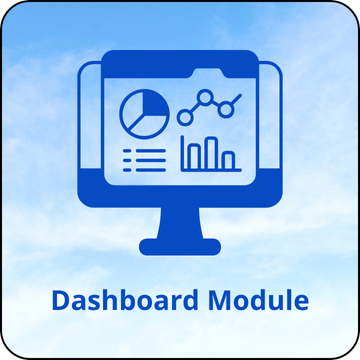

Real-Time Operational Interface

💎 Admin Center Module
The Admin Center Module is the command hub of the Integrix Core Platform, providing centralized tools to manage users, devices, access permissions, and operational policies. As one of the essential Core Platform Modules, it ensures structured control and scalability for both small-scale and complex deployments. By acting as a backbone of the Smart Platform Modules, Admin Center delivers consistency, security, and centralized governance across the entire platform.
🔷 User & Role-Based Access Control: Create and manage accounts with permissions by role, device type, or operational function.
🔷 Zone & Device Group Configuration: Define surveillance zones, group devices by area or purpose, and apply tailored access policies.
🔷 Schedules & Automation Scenarios: Enable automated workflows such as timed access, after-hours auto-lock, and customized behavior settings.
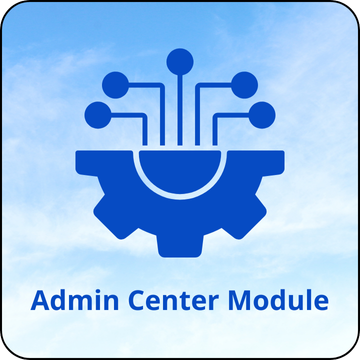

Centralized User & System Administration

💎 INTEGRIX TECHNOLOGIES
💎 THÔNG TIN LIÊN HỆ
💎 STAY CONNECTED
Email: info@integrixtech.com
Tel: +84.8.46834749 or +84.8.INTEGRIX
© 2025 Integrix Technologies. All rights reserved.
Website: www.integrixtech.com
Smart Platforms, Integrated Solutions, Custom-Built Software, and Professional Services. We drive digital transformation with scalable innovation.
We’re here to support your digital journey.
Follow us on Facebook and LinkedIn for the latest updates.
Subscribe to get updates on smart integration and AI innovation.
